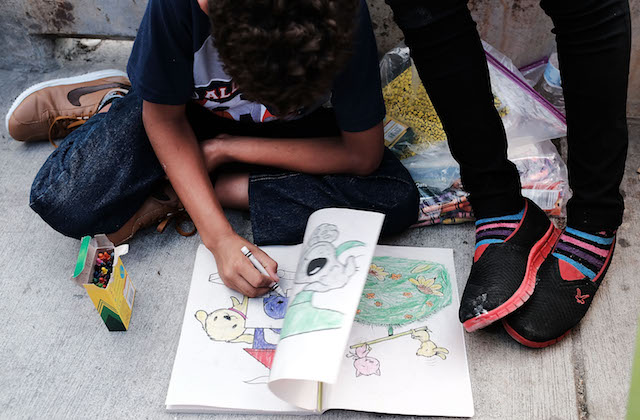Faced with immense political and judicial pressure—and its own bureaucratic mess—the federal government is now testing the DNA of migrant children held in its custody. Department of Health and Human Services (HHS) Secretary Alex Azar announced the decision in a call with reporters yesterday (July 5), saying the move will expedite the reunification of families who were separated under the Trump administration’s "zero tolerance" policy on border crossings, NBC News reports.
The move comes on the heels of a federal court ruling that ordered the Trump administration to end its practice of separating asylum-seeking families and return children under five by July 10 and minors five and older by July 26. According to The New York Times, about 100 of the nearly 3,000 children held in federal custody are reportedly under five years old.
But it’s unclear if the federal government will meet this deadline, as it never instituted a system to reunite families. The two federal agencies in charge of caring for immigrant minors never shared records with each other. The Department of Homeland Security‘s Customs and Border Protection division has disappeared or destroyed inital intake records that could have linked children with their parents. And recent policies have required that the Office of Refugee Resettlement, the division of HHS in charge of caring for immigrant minors, collect sponsors’ information and fingerprints and turn it over to Immigration and Customs Enforcement—a move that may discourage family members from claiming their children for fear of deportation.
Azar told reporters on Thursday that the traditional method of providing legal documents, such as birth certificates, would slow down the process of reunification. Even so, as a former ICE director said in June, many of these family separations could remain permanent.
Several immigrant rights advocates decried the Trump administration’s plan to conduct genetic testing on migrant children. César Cuauhtémoc García Hernández, a law professor at the University of Denver, expressed concerns about privacy and added there is no guarantee that other family members, such as cousins, uncles and aunts, will be considered eligible for biological matches, telling NBC News:
rnt
There’s a lot of reasons why kids would have parents who would not have a biological relationship, especially in places that have been experiencing high degrees of violence for many, many years like Central America where families have been scattered by the gang violence that many individuals are now fleeing. […] So it would not at all be an unusual here for children being raised by people who are not biologically their parents or who may not be biologically related to them whether it was a formal adoption or not.
Jennifer Falcon, communication director at RAICES, said the move will impose surveillance tactics on migrant children, many of whom are too young to offer their consent to DNA testing. "They’re essentially solving one civil rights issue with another—it’s a gross violation of human rights," Falcon told NBC News. "These are minors with no legal guardian to be able to advise on their legal right, not to mention they’re so young how can they consent to their personal information being used in this way?"
